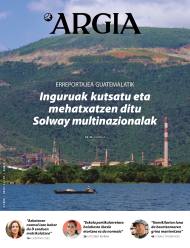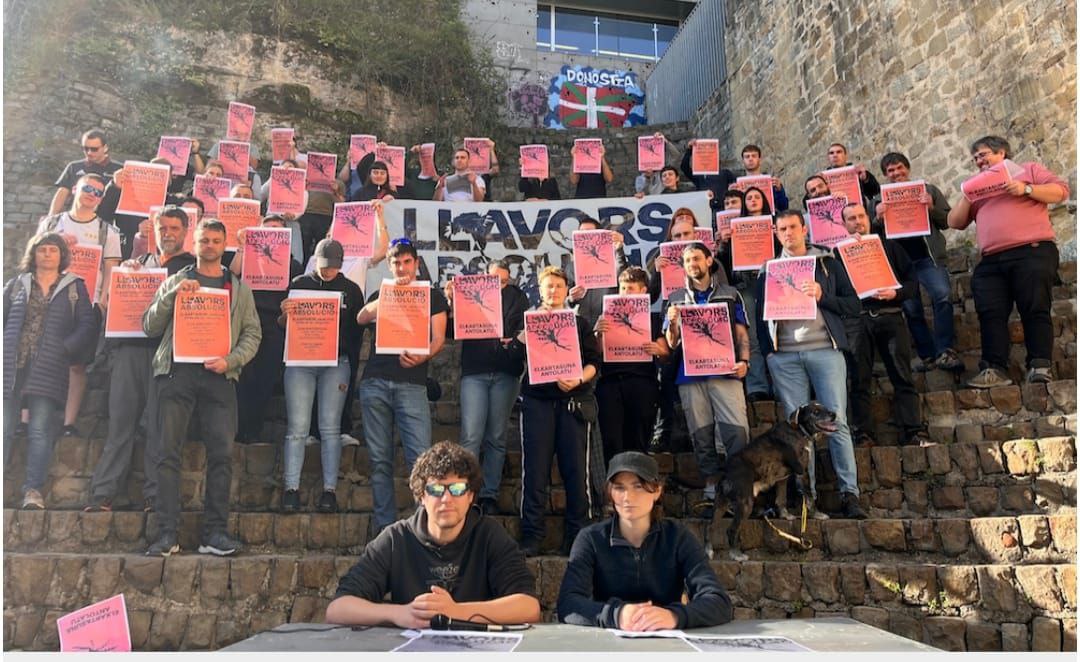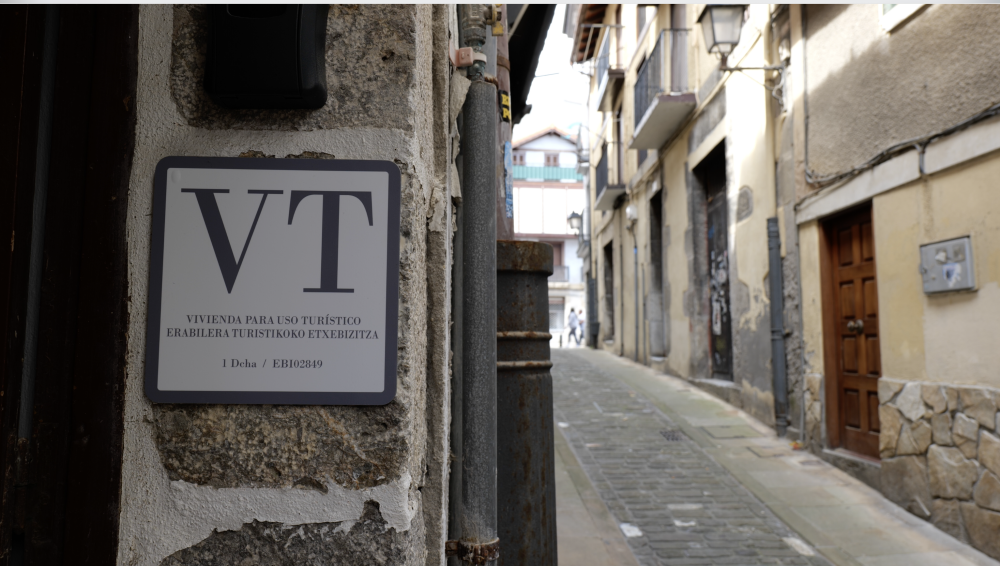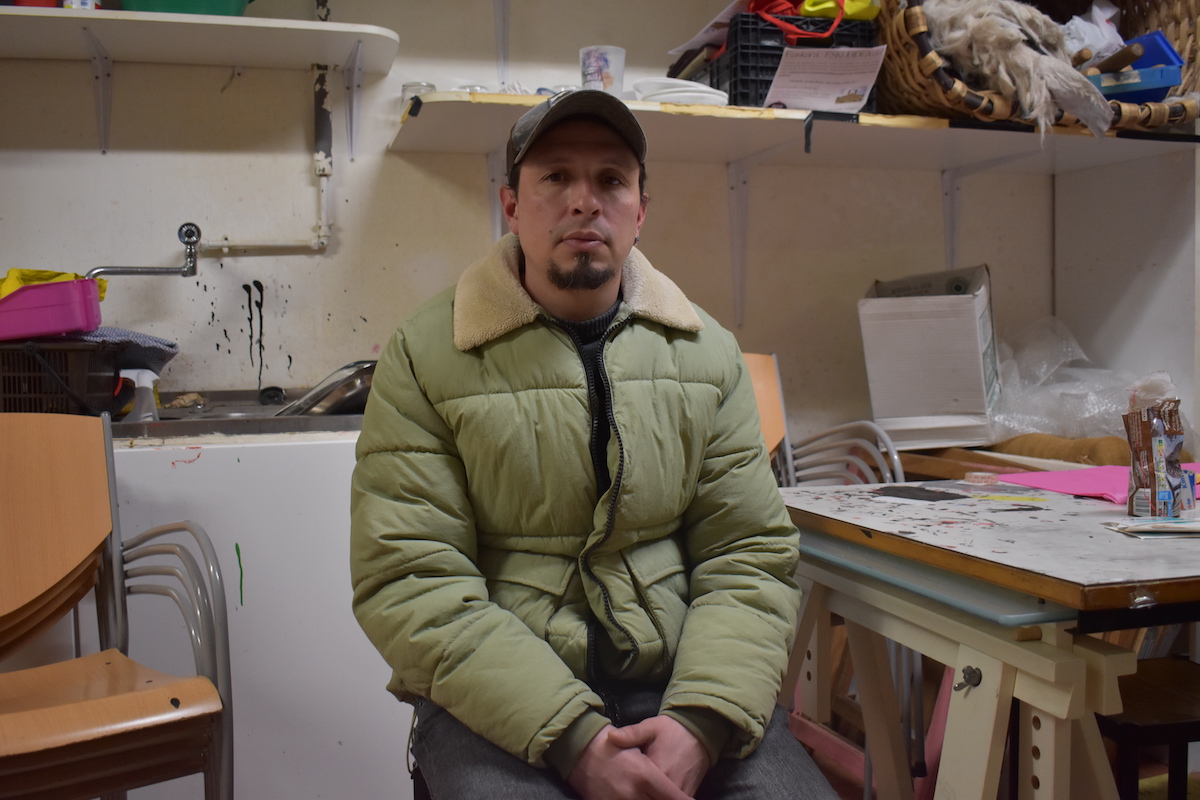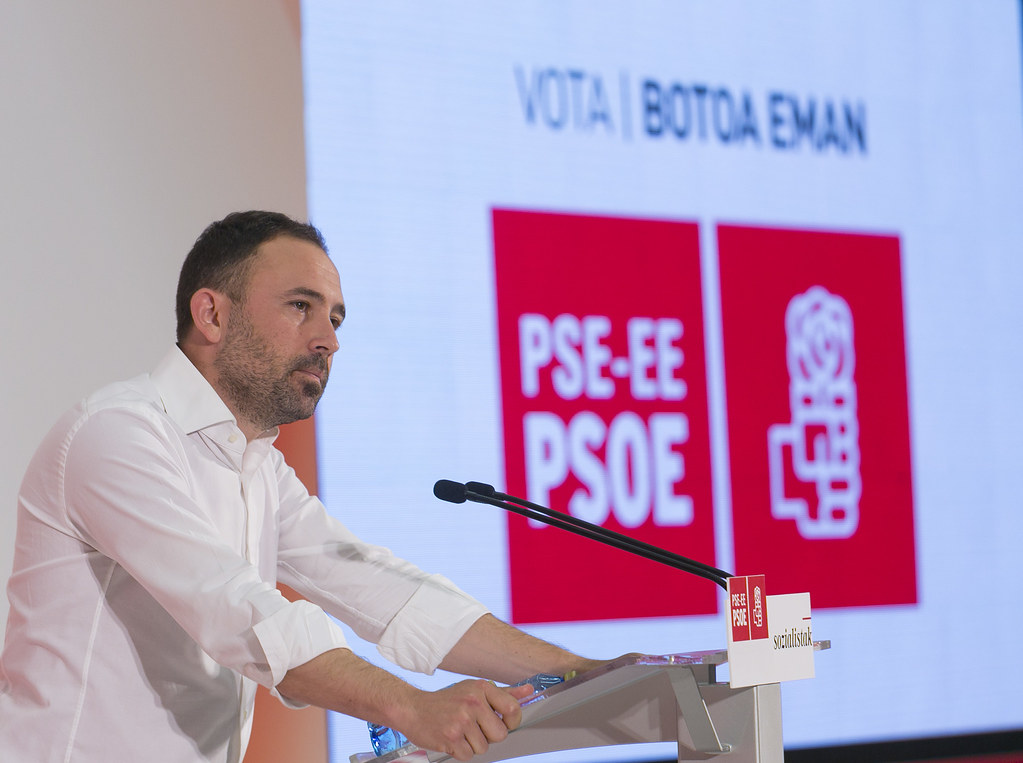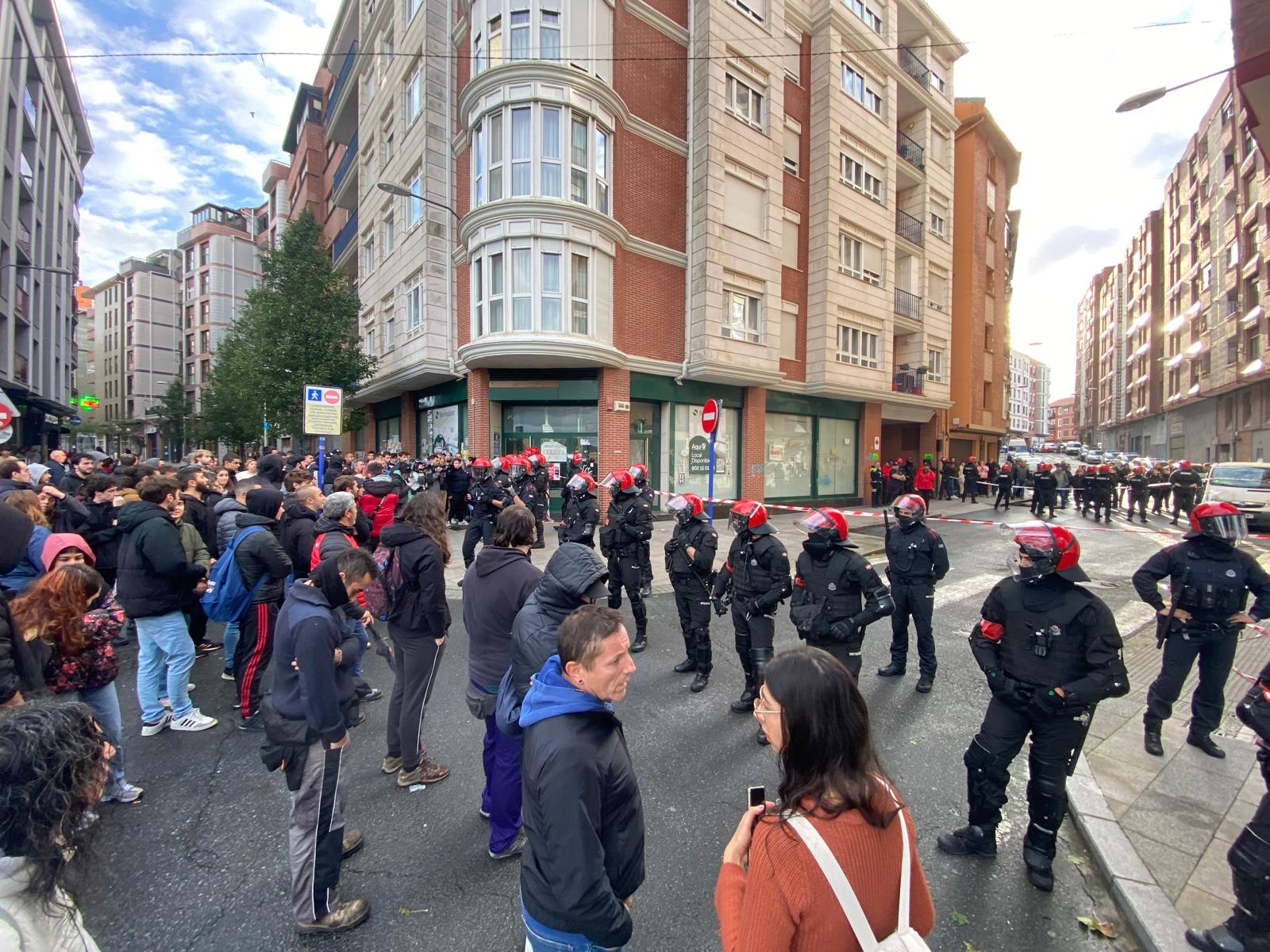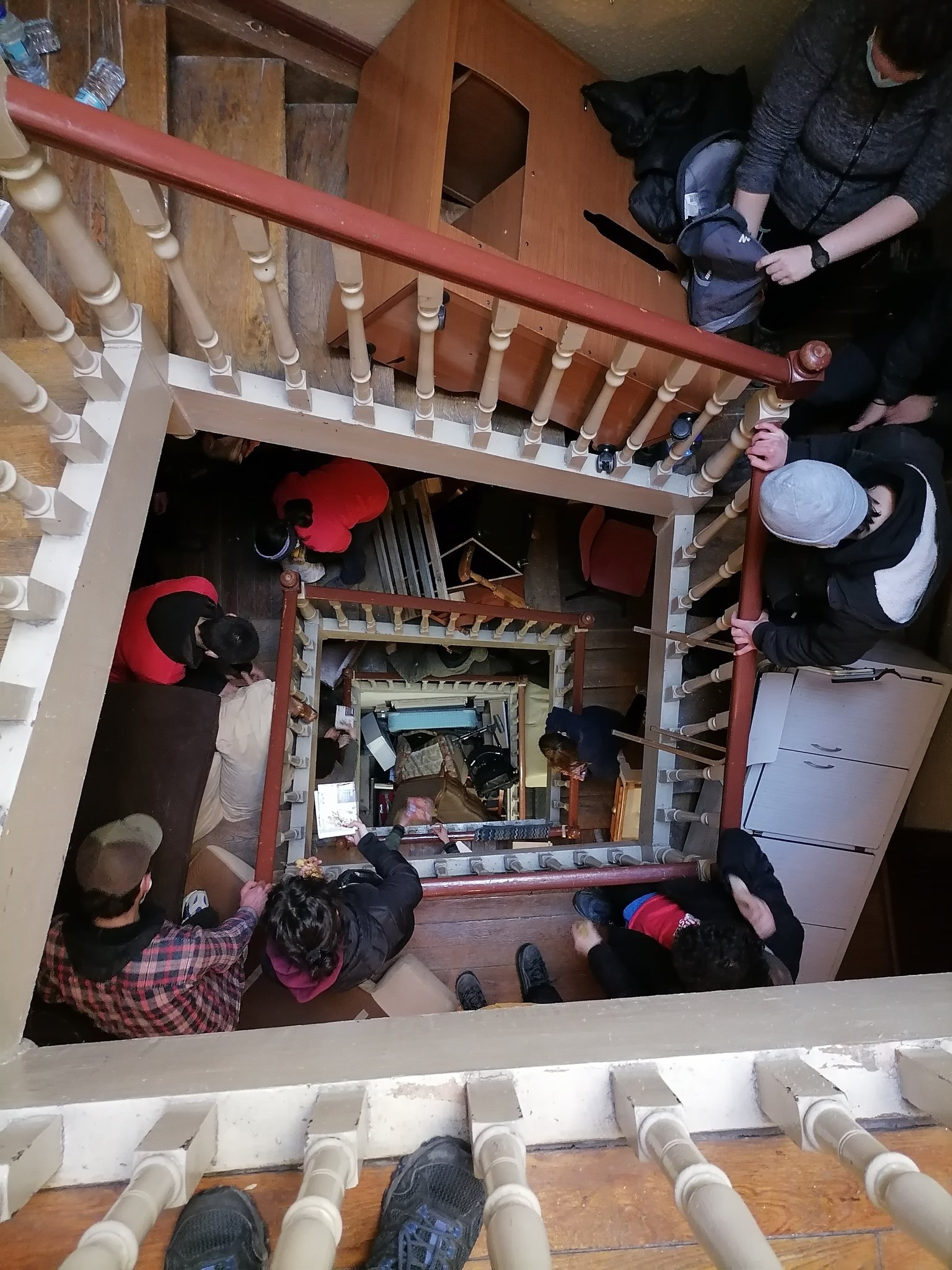"The problem is not that housing prices rise, but that housing has a price."
- A demonstration against the housing business convened by the majority unions will be held in Bilbao on 14 December. They have appealed to mobilize “in defense of free and quality housing and against the farce of politicians and institutions.” Karla Pisano (Socialist Housing Union) and Ane Salvador (Union Housing Networks) have told us about the current situation. They have denounced that, at a time when real wages are down, there is widespread impoverishment of the working class.

The average rent of housing in the Basque Country is almost 800 euros, which for many accounts for half or more of the salary. What are the consequences?
Karla Pisano (Socialist Housing Union): The consequence is a process of widespread impoverishment, we are seeing that the entire working class is impoverished. I think it is important to look at the same cause, because there is a broad speculative movement aimed at the housing market. This raises prices and reduces the possibility of access to housing.
The price of rentals in the Basque Country has risen sharply in recent years, while salaries have not.
Ane Salvador (Housing Union Network): Housing is one of the most powerful causes of the impoverishment of the entire working class. A few years ago we saw that a layer of working class was getting rid of this in some way, but today the problem is so big that it has become global. The problem is for everyone, but it has become a tragedy for those who were worse before. The last link in this chain is that of the most precarious working class, which does not have access to housing, which lives on the street and dies.
Public administrations implement a number of measures to address this issue, including social renting.
K. Pisano: From the Socialist Housing Union, we see that social housing is by no means a solution, for two main reasons. On the one hand, because state-dependent management does not guarantee the universal right to housing either. It is noted that social housing is not an oasis, but evictions are also taking place, and above all abusive practices, with greater impunity. Proof of this are the cases that come to the housing unions every day.
On the other hand, because the social concern about housing is being used to strengthen the business itself. With the increase in the social housing offer, we are assuming that the population will be poorer and poorer; and construction companies are given the skills to build social housing, further increasing the business.
A. Salvador: Adding that access to social rents is extremely difficult, the conditions are very strict and does not reach a broad layer. From the Housing Union Network we do not believe that social housing is the final solution to the problem, but the increase in social rents can improve to a certain extent the conditions of a group of citizens. What we are saying is that, knowing that institutions are not the solution to the housing problem, they are part of it.
"The problem is not the lack of supply, but the lack of access to housing," he added.
Ane Salvador
You mentioned evictions, the number is still rising, what alternatives should be offered?
A. Salvador: Since the pandemic and with the new housing law, we have been sold that the suspension of evictions has been applied, but not so. People are being left on the street so that vulture funds, big investors and big owners can reclaim their property, keep those houses empty or turn them into a tourist ground. What we are calling for is the cessation of all evictions.
K. Pisano: I will mention two other elements. The first is that promise of alternatives, which is being used so that evictions can be carried out. That is, it is considered an alternative to spend two weeks in a hostel, which is a legal guarantee enough for someone to be evicted. On the other hand, it must be understood that many evictions are being made in order to increase the business. It is a good example of what we saw in Astrabudua, as the company is dedicated to emptying a house for EUR 7,000 to sell it later for EUR 150,000 or whatever. In our view, we must demand the suspension of all evictions, that is where attention must be focused, and not so much on the issue of alternatives.
In Euskal Herria there are more than 70,000 empty houses, and in the meantime they continue to build new homes. What to do with empty houses?
A. Salvador: In our opinion, the problem is not the lack of supply, but the lack of access to housing. If there is no housing available, it does not exist because it does not exist, but because the houses are more profitable if they are empty or are tourist apartments. In addition, the construction of new housing is a very important part of the business, as it manages to feed and increase the bubble even further. With the houses there is an absurdity that more news will be built, because it would be to internalize those empty and abandoned houses and to give them to those who need them.
K. Pisano: As Ane said, the problem is not lack of supply, but access. On empty houses, I would say that there is a principle, which in its day was within the radical Social Democrat parties and which was applied in the 1980s. That is, as long as there is a housing problem, as long as there are street people and empty houses, to accept the decriminalization of the occupation as a democratic minimum. Today nobody represents this, and we should understand it as a democratic minimum.
Many new houses are being built, especially on the coast of Gipuzkoa and Lapurdi. Do you think that some regulatory action should be taken?
A. Salvador: Turistification is one of the biggest evils in the Basque Country. This is an issue that involves the displacement and replacement of the population, a trend that is spreading throughout the Basque Country. We talk a lot about tourism as if it were abstract, and it is not mentioned that behind tourism there is international capital and a tourist industry.
K. Pisano: Turistification is one of the causes of the housing problem, but it is not the only one, as the property structure of Euskal Herria is more complex. Both vacant and luxury housing and tourism are in favour of business.

What benefits can the Spanish housing law bring?
K. Pisano: They have come out with tremendous triumphalism pointing out that this housing law is going to lower prices, that it is going to stop evictions, and so on. But the evictions do not stop, as demonstrated by those we have every day; and, on the other hand, this law does not lower prices. It sets a limit to the rise in prices under very specific conditions and in particular in terms of large owners. I mean, keep going up, but a little slower. It doesn't make sense.
Among the urgent measures that you are calling for is the lowering of the overall price of housing. What steps do you propose to take to carry it out?
A. Salvador: The problem is that all the measures that have been taken so far have been taken to guarantee the right to housing, but in practice the objective has been to guarantee the income of the owners. What we are proposing is that these urgent measures should be effectively implemented in this direction and, of course, a general reduction in the price of housing should be imposed. Despite knowing that they are not the solution and that they will not solve the housing problem.
What requirements should be met for housing to be a universal right?
K. Pisano: We could sum it up in three points. One, clarify what we mean when we talk about the universal right to housing. We believe that everyone should have the guarantee of being able to live in a home in conditions of minimum quality and be able to live on a stable basis. Because right is not a right if there is no choice. Otherwise, it is a vain ideal.
Secondly, for this right to be real, the management of another economy is necessary. The question is not that mathematics does not look like it, but that the existing means are used within the framework of an entirely irrational economic logic. Irrational from the perspective of social needs, fully rational from the perspective of economic benefits.
And three, articulate a broad movement within these clear principles to exert pressure and bring about those changes.
"Social housing is not an oasis, but there are evictions and abusive practices," he added.
Karla Pisano
The demonstration has been convened by many trade unions.
A.Salvador: We believe it is important to call this mobilization among the different subjects involved in the housing struggle. In our view, it was a step to take, agree on common ground or common ground at a time when we are facing a class offensive and seek unity at those points in order to deal with the enemy.
K.Pisano: Placing these points on the left has been fundamental. In this case, we have focused on the de-commodification of housing and on the criticism that can be made of private property.
Why is it important to mobilize?
K. Pisano: If radical changes are to be desired, there must be broad and radical movements. Do not condemn us to the discussions on the Rules of Procedure, and let us move on to the substantive debate. Let's say what radical changes are needed to make change possible and start moving to generate those radical changes.
A. Salvador: It is essential to influence the de-commodification of the dwelling, since the problem is not the increase in the price of the dwelling, but the price of it.
Aljeriatik datoz Mohamed eta Said [izenak asmatuak dira], herri beretik. “Txiki-txikitatik ezagutzen dugu elkar, eskolatik”. Ibilbide ezberdinak egin arren, egun, elkarrekin bizi dira Donostian, kale egoeran. Manteoko etxoletan bizi ziren, joan den astean Poliziak... [+]
Espainiako hedabideetan aurkitu dugu albistea, salaketa egin dutela Fotocasa eta Idealista etxebizitza-atarien kontra, prezioak manipulatzen dituztelakoan. Salaketan ez dugu manipulazioaren deskribapen zehatzik aurkitu, baina Ameriketako Estatu Batuetan agertu den salaketa... [+]
Ez da gauza berria politikari profesionalak gizarteko arazoak estaltzeko ahaleginetan ibiltzea. Azkenaldian Denis Itxaso -EAEko Etxebizitza sailburua- entzun dugu etxegabetzeei garrantzia kenduz eta aditzera emanez gurean bazterreko fenomenoa direla; eta Begoña Alfaro... [+]
Azpeitiko Udalak etxebizitza hutsei ezarritako kanona abian jarri berritan –eta Euskadi osora zabal daitekeela jakinda–, etxebizitza horien jabeen eta eskuineko alderdien kexak irakurtzen eta entzuten hasiko gara. Jabetzarako Eskubidearen inguruko mantra horiek... [+]
Azora putre funts alokairua igo eta mantentze lanak alde batera utzi ditu, Isaac Lagos eta bere familia etxebizitza uztera behartuz. Kaleratzearen aldeko epai bat jaso berri du maizterrak.
Plataformak "atzerapausotzat" hartu du Eusko Jaurlaritzako Etxebizitza eta Hiri agendako sailburu Denis Itxasok berriki iragarri izana lurzoru urbanizagarrietako etxe babestuen proportzioa %75etik %60ra jaistea. Pradales agintera iritsi zenetik alokairu soziala eskatzen... [+]
Etxera itzuli ahal izan diren arren, joan den azaroan kaleratu zuten Astrabuduko familia berriz ere arriskuan dago. Uribe Kostako Etxebizitza Sindikatuak salatu du mailegu-enpresa berriz ere saiatzen ari dela kanporatzea gauzatzen, oraingoan, desokupazio-enpresa bat... [+]
Azken boladan gero eta gehiago entzuten dugu gazte askok etxebizitza erosteko ahalmenik ez dugula. Batzuetan, badirudi ez dagoela beste gairik; egia da gai serioa dela. Niri neuri ere, 31 gertu izan arren, oraindik pixka bat falta zait neurea izango den etxebizitza lortzeko... [+]
Azken egunak garrantzi handikoak izan dira Bartzelonan, etxebizitzaren aldeko mugimenduarentzat eta espekulatzaileen aurkako borrokarentzat. Urtarrilaren 28an, polizia-armada batek Raval auzoko Massana Zaharrari [zentro sozial okupatua] eraso egin zion goizaldean, aurrez abisatu... [+]







